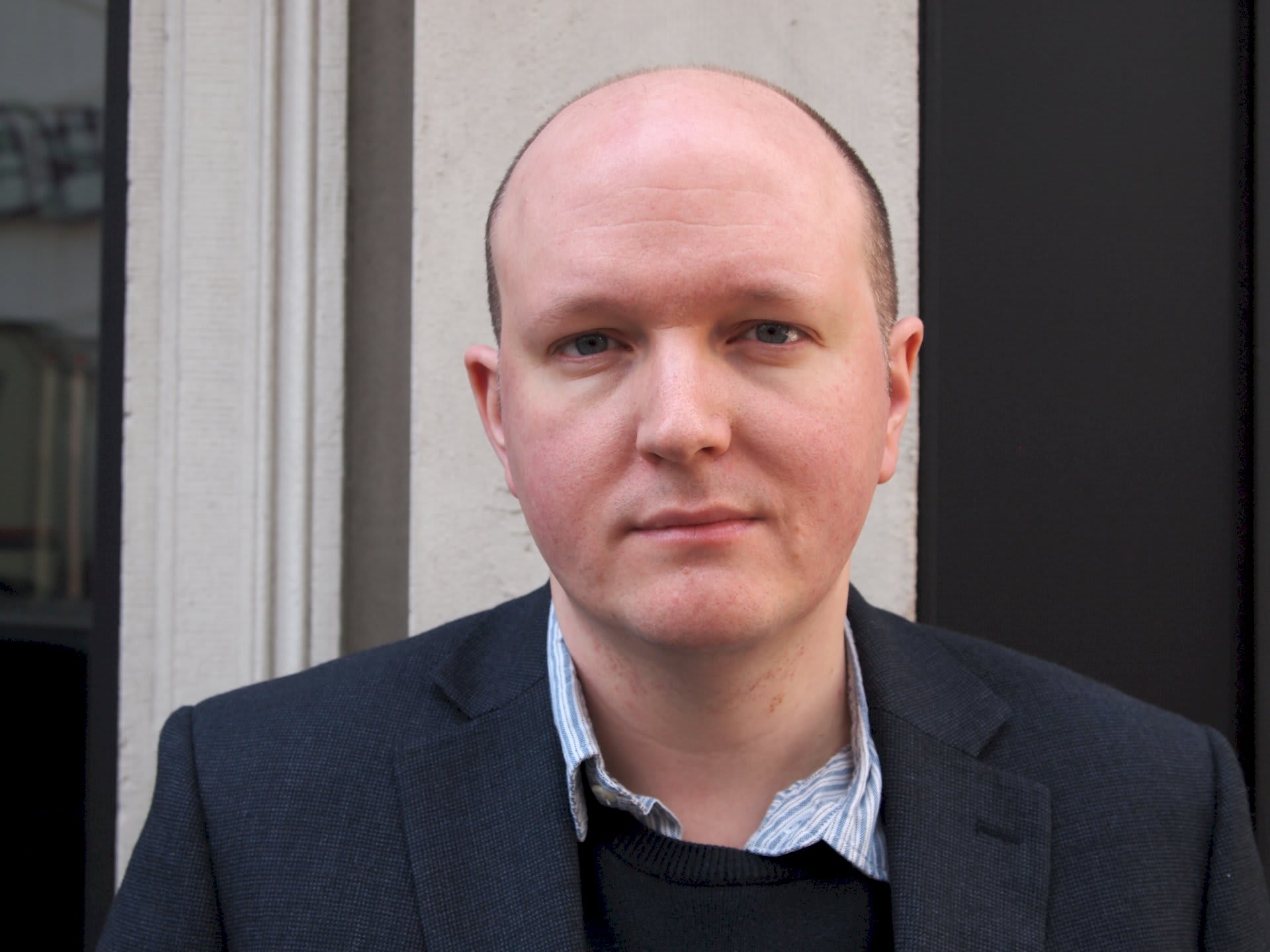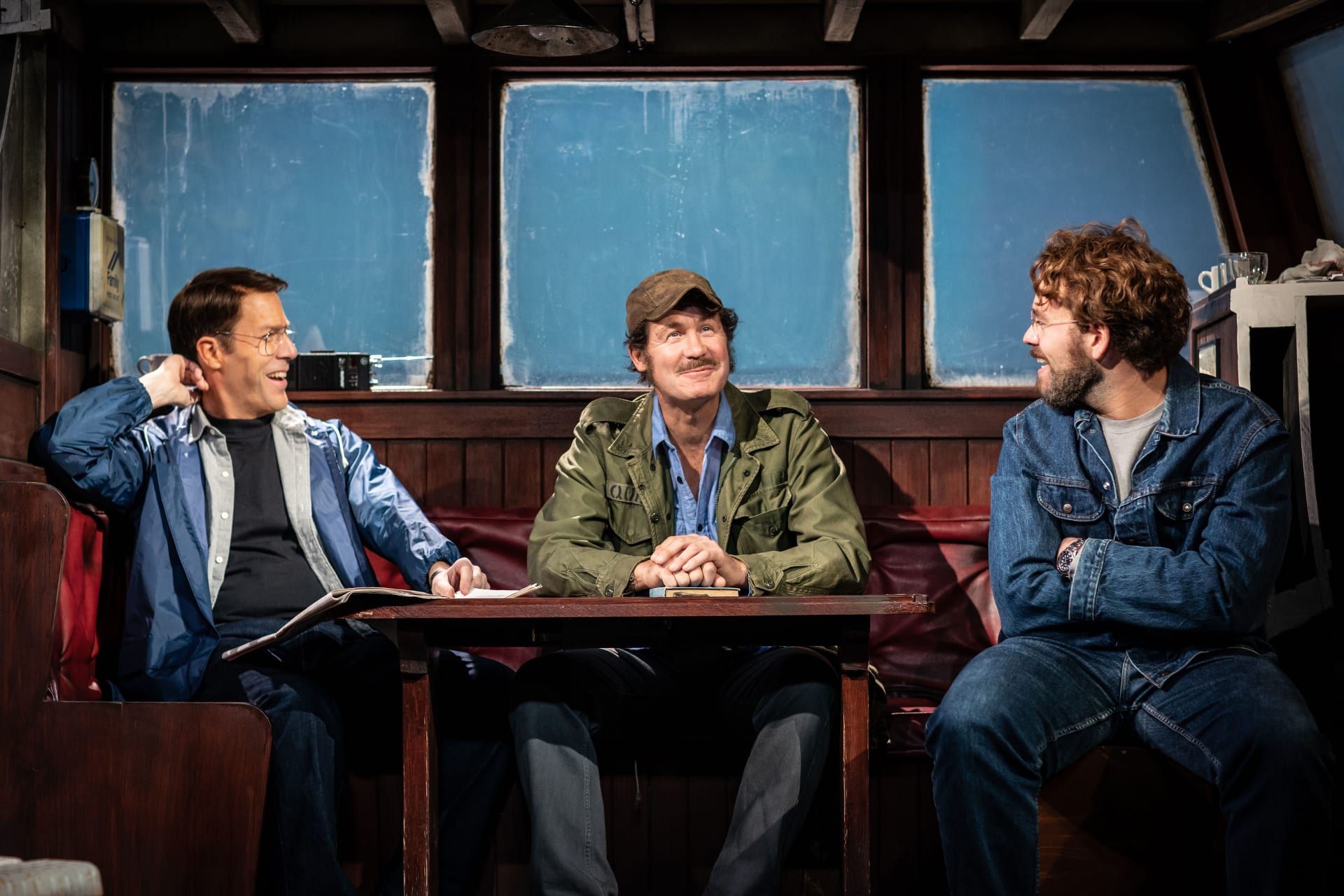In conversation with Mike Bartlett
It's a tough job...
Researching Mike Bartlett is fun. You can watch back-to-back episodes of Doctor Foster series one on Netflix. Presumably he knew he had something good when he wrote the BBC hit, but did he predict its popularity? “No,” he answers, “and I didn't know I had something good when I wrote it.” He never does, he says. The creators hoped for a few million viewers, but “didn't anticipate it being so successful. It was amazing when people really got into it.”
The series is set in fictional Parminster, a town similar to Abingdon where he grew up. “I write about things all over the place, different locations and different settings, but if I end up wanting to write about a domestic situation or something that's not to do with a city, I do imagine a market town like Abingdon.” There are references to his hometown in the show, he explains, such as the multi-storey car park and the sticky carpets of former nightclub Strattons. “Even when I imagine the doctors’ surgery – the way in which one parks at it, and the way in which you get to it – I imagine it like one of the doctors’ surgeries in Abingdon. No one really needs to know this, but in my head it's just useful to have that model so it feels real.”
What's so funny about Reading?
In Doctor Foster, Press (another BBC series he’s penned) and in a fair few of his plays, the town of Reading is mentioned. Is that out of fondness? “It's definitely affectionate, and I've just found if you mention Reading in a play, it tends to get a laugh. I don't know why, it's just quite funny. There are other towns like Swindon or Slough which have been mocked a lot, and they're not as funny because they're more obvious. I enjoy referencing it and seeing what happens.”
His 2009 play about sexuality, Cock, was revived this year by Chichester Festival Theatre. The play is concerned with identity, he says, and this revival saw “a whole new generation of people coming to see it who have been brought up within that discussion about identity, and have many more terms to describe sexual identity than were around ten years ago when the play was first on”.
Snowflake
Generations are at the heart of his new play Snowflake, opening at Oxford’s Old Fire Station this month. Set at Christmas, it’s the story of Andy (aged 43) and his daughter Maya (21) who haven’t spoken in the three years since she left home. “He doesn't know why she left, and now she's coming back, and he's going to try and work out what happened, whether they can have a relationship now, and whether their worlds are too far apart.” At 38, Bartlett feels “half middle-aged, and half young still, and that's quite a good place to write a play about the conversation between those two generations – the ones who are 19-20 now, and the ones who are 40”. There have been changes in the way people operate, interact and socialise, he says, “but also changes – particularly in the last two or three years – in language and attitude towards gender, race, everything.”
He sees this as a positive thing, “but a real challenge for a generation that was brought up using a different language. That's what happens with every generation. It happened in the 60s, the 20-year-olds in 1962 challenging the post-war generation – it's exactly the same thing.” The younger group “develop their own language and a new way of thinking, and I think it's a really crucial thing to happen. I wanted to write about that.” The word ‘snowflake’ is an interesting one to emerge from the recent generational conversation, he states, then declaring a liking for the double meaning of the title, what with Snowflake being a Christmas play.
The story sounds heavy, he adds, “but hopefully it's very entertaining and funny as well. The brief was: ‘It's a Christmas play and therefore needs hope and redemption underneath it.’ That hasn't always been the case with my plays, so that was a really good creative challenge.”
I ask who he regards as the greatest living playwright, before saying he can pick three to make things a bit easier. His answer today could well be different tomorrow, he points out, but he opts for debbie tucker green, Caryl Churchill, and Tony Kushner. And the most important play? “I often go back to Angels in America [Kushner’s two-part epic about the Aids crisis] because it manages to do almost everything in two incredible plays. It's political, personal, moving and very funny.” It’s an example, he says, of how “you can have your cake and eat it”, being a play that appeals “to a wide audience while also doing something avant-garde and unexpected. That's what I aim to do, and love to do.”
Hopefully he continues to do so, and will remain available for interviews – I’d like to be able to watch series two of Doctor Foster and call it work.
Snowflake is at the Old Fire Station 5-22 December | You can buy tickets here.










